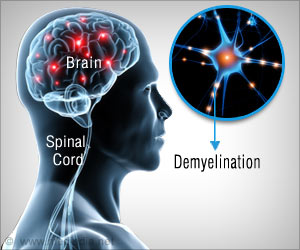
‘Older people who progressed to secondary progressive multiple sclerosis were four times as likely to report having fatigue than people whose disease did not progress.’
Tweet it Now
In older people with MS, having fatigue and limited leg function is
more often seen in people with MS progression than in those without,
according to a preliminary study that will be presented
at the American Academy of Neurology's 69th Annual Meeting in Boston."Study participants with those symptoms were more likely to progress from relapsing-remitting MS to secondary progressive MS within five years," said study author Bianca Weinstock-Guttman of the Jacobs School of Medicine and Biomedical Sciences at the University of Buffalo in Buffalo, N.Y., and a member of the American Academy of Neurology. "Better understanding who is at high risk of getting worse may eventually allow us to tailor more specific treatments to these people."
For the study, 155 people age 50 or older who had relapsing-remitting MS for at least 15 years were evaluated for symptoms and level of disability at the beginning of the study and then again five years later, at which point they had been living with MS an average of 22 years.
In all, 30% of people in the study had progressed to secondary progressive MS by the five-year mark.
Those who progressed to secondary progressive MS were four times as likely to report having fatigue, 92% compared to 68% of people whose disease did not progress. The results were the same after researchers adjusted for other factors that could affect disease progression, such as age, how long people had the disease and how severe their disability was.
Advertisement
Those who progressed were older at the start of the study than those who did not progress, with an average age of 55 compared to 52. They also had a higher rate of disability at the beginning of the study as well as five years later.
Advertisement
Source-Eurekalert














